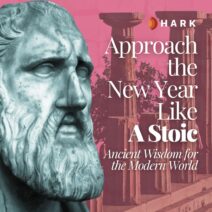10 Seneca Quotes on Anger – How to Tame the Inner Beast

“The first essential is not to become angry, the second to cease being angry, the third to cure also anger in other.”
Seneca, On Anger, Book 3, Section 5
Anger is one of the most reactive emotions we face. It burns quickly, clouds our judgment, and often causes more damage than the original offense. Seneca, one of the great Stoic thinkers, wrote extensively on how to handle it. These 10 Seneca quotes on anger can help along the way.
He offers a three-part strategy that still holds up today:
- Prevent anger from arising
- Reduce anger in ourselves
- Help others let go of anger
Before we start, we must understand that anger is not the primary emotion. It can be seen as a coping mechanism or a reaction to an underlying trigger. When we realize this, we can skip the anger and look at the core of our turmoil. Some people prefer to be angry because that distracts them from the real hurt. With these practices, we can start to reduce the anger we feel and use to react to painful situations.
Let’s explore 10 of Seneca’s most insightful quotes on anger and how you can put each one into practice.
Preventing Anger
1. Anger is a brief madness.
“Anger is a brief madness.”
Seneca, On Anger, Book 1, Section 1

Anger hijacks our reason. It turns us into someone we are not, even if only for a moment. That moment, however, can change everything. How many times have you acted out of anger and later looked back with regret? This emotion is quick and takes over our minds completely. In extreme situations, those under its spell cannot even recall what they did.
Can we control insanity? No, we are at its mercy. That is why we need to understand that it is not a state we want to be in, and we have to prevent it whenever we can.
Practice: When you feel the first signs of anger, pause. Remind yourself: this is temporary madness. Give it space to pass and look for the underlying trigger.
2. The most destructive plague
“No pestilence has been more costly for the human race.”
Seneca, On Anger, Book 1, Section 2
From personal conflicts to full-scale wars, Seneca reminds us that anger has caused more destruction than most realize. Whether it is revenge or jealousy, these emotions have been the cause of a great deal of hurt. An organized mob can become a stampede of wild animals. In this case, they are often directed by calm instigators who have a purpose in mind.
But the enraged crowd is blind to reason. They have caught this contagious virus and can hardly be stopped. Out of all these 10 quotes by Seneca on anger, this one shows its true nature. It is a plague that can spread from one mind to another.
Practice: Ask yourself why you are becoming angry. Is it because your friend feels anger inside? Should you take that as your own, or should you let reason calm him down?
3. Greatness of Spirit is without Anger
“Greatness of spirit, as I understand it, is unshaken, solid through and through, balanced and stable from its base on up, the sort of thing that bad natures cannot contain.”
Seneca, On Anger, Book 2, Section 20
A strong person is not the one who fights back fastest, but the one who can remain composed when provoked. This person’s spirit has such a strong foundation that it can remain balanced and unshaken regardless of the provocation.
It is here that we need to test ourselves, in our character and soul, and make sure that we remain calm and peaceful. If we do so, then there are no bad influences that can shake us, and we will take the just course of action at any moment.
Practice: Work on lengthening the space between stimulus and response. Calmness is strength. Let your silence speak for you and trust your character to remain upright.
Reducing Anger in Yourself
4. Anger’s evil side
“Anger has this particular evil trait: it is unwilling to be controlled.”
Seneca, On Anger, Book 1, Section 19
Anger pretends to be strength, but it refuses guidance. Once it flares, it does not want to be tamed—it wants to rule. Seneca warns that this quality makes it one of the most dangerous emotions, as he continues in his text.

“It [anger] grows angry at the truth itself, if it appears to contradict its will.”
Seneca, On Anger, Book 1, Section 19
Nowadays, we call this the result of cognitive dissonance. The mind is torn, and anger is used to cling to what the person believes, even though the facts are clear. We must therefore be levelheaded against anger and use reason and logic to let it subside.
Practice: When anger rises, notice its refusal to listen. Do not try to fight it head-on. Instead, step back, breathe, and create space between the emotion and your next move.
5. What is the cure?
“The greatest cure for anger is delay.”
Seneca, On Anger, Book 2, Section 29
Seneca’s advice here is as practical as it is timeless. Anger is impulsive. It wants to act now. That urgency is part of its power. But delay defuses it. With time, what once seemed like an outrage shrinks into something manageable, or even trivial.
This quote gives us permission to wait, to breathe, to not respond at the height of emotion. Delay is not inaction. It is intentional space. And often, that space is enough to prevent damage we might later regret.
Practice: Create a personal rule: do not respond to anything while angry. Whether it is an email, a conversation, or a decision, give it time. Even a few minutes of delay can change everything.
6. Reject it right away
“The best course is to reject straightaway the initial prickings of anger, to fight against its first sparks, and to struggle not to succumb to it.”
Seneca, On Anger, Book 1, Section 8
Anger often begins quietly, an irritation, a sharp thought, a quick judgment. But those small sparks, left alone, can grow into something destructive. Seneca tells us the best moment to act is not when we are already angry, but at the very start, before the emotion takes hold.
This is when anger is weakest. But it is also when we are most likely to overlook it. The challenge is to catch it early, to treat the prickings of anger as warning signs, and respond with awareness rather than reaction.
Practice: Learn to recognize your early anger signals. A shift in your breath, your tone, your thoughts. As soon as you feel them, pause. Take three slow breaths. Reject the spark before it grows into flame. As you practice this, you will be able to detect the signals sooner.
7. Forgive all of humankind
“To avoid being angry with individuals, you must pardon the whole mass; you must grant forgiveness to the entire human race.”
Seneca, On Anger, Book 2, Section 10

This is Seneca at his most humane. He reminds us that if we want to stop being angry at people, we need to accept what it means to be human. People will fail. They will hurt us, misunderstand us, and sometimes act selfishly. But if we choose to view these actions as part of the broader human condition, we can meet them with understanding instead of outrage.
They are no different from us, merely misguided. That is why we have to show compassion and kindness. Try to walk a mile in their shoes and ask if we would have done things any better.
Practice: When someone wrongs you, zoom out. Remind yourself: this is part of being human. They are imperfect, just like I am. Forgive the individual by forgiving the whole.
Removing Anger in Others
8. Can you be a fair judge?
“If we want to be fair judges in all matters, let us convince ourselves that none of us is without fault.”
Seneca, On Anger, Book 2, Section 28
Before we judge others or correct their behavior, Seneca reminds us to first look inward. None of us is perfect. Anger often stems from placing ourselves above others, from forgetting our shared flaws. True fairness begins with humility.
This quote shows the link between the self and the world around us. We cannot begin to judge others if we cannot do the same for ourselves. Once we recognize our flaws, we can begin to forgive others more easily.
Practice: When someone angers you, pause and ask: Have I ever made a mistake like this? Let your memory temper your judgment. Speak not from superiority, but from shared humanity.
9. Redefine Anger
“It is the mark of a great spirit to regard wrongs as beneath contempt.”
Seneca, On Anger, Book 2, Section 32
Seneca redefines strength, not as retaliation, but as self-possession. The truly great spirit does not get dragged into petty quarrels. It sees offenses for what they are, small, fleeting, unworthy of a serious reply. When you regard wrongs as beneath contempt, you rise above them.
Practice: The next time someone offends you, pause and ask: Does this deserve my energy? Then choose to move forward without drama. Reserve your focus for what truly matters.
10. It’s better to heal than to avenge
“How much better it is to heal an injury than to avenge it!”
Seneca, On Anger, Book 3, Section 27
Seneca does not just dismiss revenge; he offers something better in its place. To heal an injury is not a weakness. It is a strength, and it elevates the souls of both people involved. It is the choice to break the cycle of harm and choose peace over pride.
Practice: The next time you feel the urge to retaliate, pause and ask: What would healing look like here? Then move in that direction. Choose to end the pain, not pass it on.
Final Thoughts
Seneca did not write for abstract philosophers. He wrote for people in real life. People who felt angry, provoked, or insulted. People like us. His advice on anger remains some of the most practical and grounded in all of Stoicism. Not because it removes all emotion, but because it teaches us to meet our emotions with strength, reflection, and clarity.
It starts by preventing anger, calming it when it arises, and helping others do the same. Over time, we begin to trade reaction for reason. These 10 Seneca quotes on anger can help you on your way.
Struggling with anger?
Book a free consultation with one of our Stoic Coaches to get support. Or read more on the Seneca Quotes page. You can also listen to the Via Stoica Podcast on Spotify, Apple Podcast, or watch it on YouTube.
Watch our latest episode on Anger on the Via Stoica Podcast.
Author Bio
Benny Voncken is the co-founder of Via Stoica, where he helps people apply Stoic philosophy to modern life. He is a Stoic coach, writer, and podcast host of The Via Stoica Podcast. With almost a decade of teaching experience and daily Stoic practice, Benny creates resources, workshops, and reflections that make ancient wisdom practical today.
Related Posts
-
 Greek Stoic Philosophy Terms
Greek Stoic Philosophy TermsWhat Is Ekklisis? The Stoic Art of Avoiding What Harms Your Character
What Is Ekklisis? Ekklisis in Stoicism is the rational refusal to engage with what would damage one’s moral choice. The Stoic meaning of ekklisis is important because it teaches us what to turn away from, not out of fear, but out of commitment to living well. In daily life, ekklisis helps us step back from […]
Read more -
 Via Stoica Podcast
Via Stoica PodcastA Hark Audio Curated Stoic Playlist for 2026
At the start of a new year, there is often an unspoken promise that things will somehow be different. Calmer. More ordered. More predictable. Yet life rarely follows that script. Delays disrupt flights, plans break down, people drift away, and life brings events we cannot control. What we can work on, and what Stoicism has […]
Read more -
 Book Reviews
Book ReviewsThe Stoic Leader by John Sellars and Justin Stead
The Stoic Leader introduces Stoicism as a practical philosophy and explores how its principles shape leadership, judgment, and character in both work and life. Summary Written by John Sellars and Justin Stead, The Stoic Leader offers what is effectively two books in one. Sellars provides an introduction to Stoicism and its philosophical foundations, while Stead […]
Read more


Comments 0